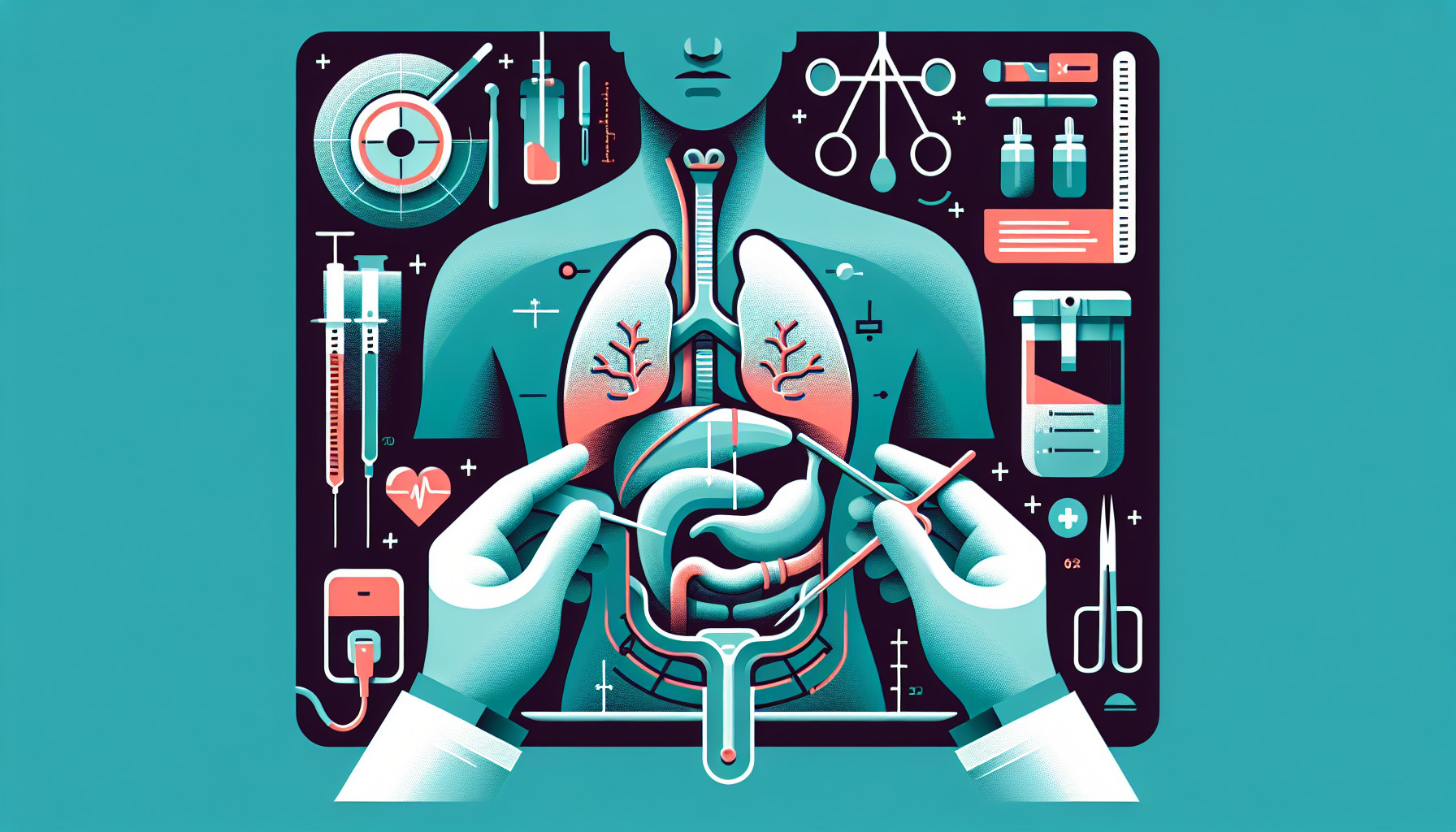Our Summary
This research paper studies the relationship between the number of pancreas transplants a medical center performs and the survival rates of the transplanted pancreases. The study looked at more than 11,000 simultaneous pancreas-kidney transplants and over 4,000 solitary pancreas transplants done between 2000 and 2013. It found that centers that performed fewer transplants each year (low-volume centers) had higher rates of pancreas failure within the first three months, a risk that continued to be higher even after 1, 5, and 10 years. Centers that performed more transplants (high-volume centers) had better pancreas survival rates. The researchers suggest that future studies should aim to identify the best practices that result in successful pancreas transplants, regardless of the number of transplants performed by a center.
FAQs
- What is the relationship between the number of pancreas transplants a medical center performs and the survival rates of the transplanted pancreases?
- Were there differences in pancreas survival rates between centers that performed more transplants and those that performed fewer?
- What are the suggested future directions of research based on this study on pancreas transplants?
Doctor’s Tip
A doctor may advise a patient considering a pancreas transplant to seek out a high-volume transplant center with a proven track record of successful outcomes. They may explain that research has shown that centers that perform more pancreas transplants tend to have better survival rates for transplanted pancreases. By choosing a high-volume center, patients may increase their chances of a successful transplant and improved long-term outcomes.
Suitable For
Patients who are typically recommended for a pancreas transplant include those with type 1 diabetes who are experiencing severe complications such as kidney failure, nerve damage, or eye problems. These patients may also have difficulty controlling their blood sugar levels despite insulin therapy and other treatments. In some cases, a pancreas transplant may be recommended for patients with type 2 diabetes who are also experiencing severe complications and are unable to control their blood sugar levels effectively. Additionally, patients who have undergone a kidney transplant may be recommended for a simultaneous pancreas-kidney transplant to improve their overall health and quality of life.
Timeline
Before a pancreas transplant:
- Patient is diagnosed with type 1 diabetes and develops complications such as kidney failure
- Patient undergoes extensive medical evaluation to determine if they are a suitable candidate for a pancreas transplant
- Patient is placed on the transplant waiting list and waits for a suitable donor pancreas to become available
After a pancreas transplant:
- Patient undergoes surgery to receive the donor pancreas
- Patient is closely monitored in the hospital for any signs of complications or rejection
- Patient takes immunosuppressive medications to prevent rejection of the transplanted pancreas
- Patient undergoes regular follow-up appointments and tests to monitor the function of the transplanted pancreas
- Patient experiences improved blood sugar control and quality of life, with a reduced risk of complications associated with diabetes
Overall, a pancreas transplant can greatly improve the quality of life for patients with type 1 diabetes and kidney failure. However, it is important for patients to be aware of the risks and benefits of the procedure, as well as the importance of receiving care at a high-volume transplant center to maximize the chances of a successful outcome.
What to Ask Your Doctor
- How many pancreas transplants does the medical center perform each year?
- What is the success rate of pancreas transplants at this medical center?
- What are the potential risks and complications associated with a pancreas transplant?
- What is the recovery process like after a pancreas transplant?
- How long does it typically take to find a suitable donor for a pancreas transplant?
- What is the long-term outlook for someone who undergoes a pancreas transplant?
- Are there any lifestyle changes or medications that will be necessary after a pancreas transplant?
- How often will follow-up appointments be needed after a pancreas transplant?
- What are the criteria for being considered a candidate for a pancreas transplant?
- Are there any alternative treatments or therapies that should be considered before opting for a pancreas transplant?
Reference
Authors: Alhamad T, Malone AF, Brennan DC, Stratta RJ, Chang SH, Wellen JR, Horwedel TA, Lentine KL. Journal: Transplantation. 2017 Nov;101(11):2757-2764. doi: 10.1097/TP.0000000000001628. PMID: 28099402
